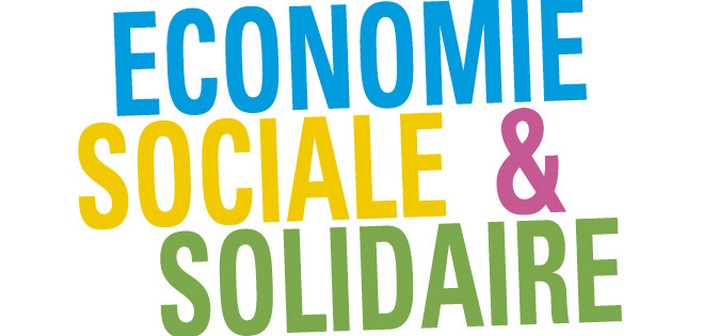The Social and Solidarity Economy (SSE) today represents more than 10% of French employment (13% in the PACA region). However, the actors of the social and solidarity economy are often perceived as small structures with a questionable impact.
Yet, by grouping together or pooling their services, they become economic forces that have nothing to envy from traditional companies.
On the business side, the awareness of environmental issues, pressure from customers and shareholders, the search for meaning and ethics in business, are leading leaders to get closer to SSE actors.
Furthermore, more and more entrepreneurs from the traditional economy wish to create and sustain economic activities while having a strong social impact, thus developing a new economic citizenship.
Finally, the solidarity economy and social entrepreneurs today wish to become familiar with the processes of traditional enterprises to professionalize their management and open up new growth opportunities to extend their social utility.
The Social and Solidarity Economy and the traditional economy suffer from a mutual lack of knowledge.
We asked Jérôme Vandamme (chief of staff for the president of UPE06) and Denis Philippe, president of the Regional Chamber of SSE PACA* to delve deeper into the reflection and exchange between them.
Jérôme Vandamme: How can we create a transversal lever, both in terms of economic development and in the different policies of a locality?
Denis Philippe: SSE is perceived as an “economy on life support” by many elected officials and actors of the traditional economy. It has often been reduced to its dimension of “social repair”, mainly oriented towards the provision of personal services and the direct response to the social needs of beneficiary populations.
Jérôme Vandamme: SSE is often defined in opposition to the “real” economy – the traditional economy – which is, essentially, considered the only truly legitimate one…
Denis Philippe: The framework law on Social and Solidarity Economy adopted in July 2014 notably allowed for the definition of the perimeter of the Social and Solidarity Economy and gave it a legal definition.
Jérôme Vandamme: SSE is currently in a phase of transformation.
Denis Philippe: One of the major difficulties the Social and Solidarity Economy faces today in order to develop and structure itself, both at the level of the actors that constitute the SSE and within political institutions, lies in the vision of the role it should play in society.
Unlike a restrictive vision that limited it to a strictly palliative or transitional role, it increasingly asserts itself as an alternative economy with its own objectives, specificities, and a role in the socio-economic fabric structuring society.
Jérôme Vandamme: How can we initiate a real change of scale for SSE?
Denis Philippe: Following the economic crisis of 2007, a new wave of initiatives was undertaken to create jobs for people affected by mass unemployment, through microcredit or activity and employment cooperatives.
It was in the United States in the 1990s that social entrepreneurship appeared for the first time. The pioneers in its conception and implementation came from the affluent circles of American society such as the Harvard Business School, for-profit enterprises, and foundations.
Their primary goal was to support actors who were committed daily to combating a multitude of social problems. Broadly speaking, social entrepreneurship refers to “market-driven economic activities serving a social purpose.” It draws on the methods of traditional venture capital economics but focuses more on social return on investment.
Thus, while being market-oriented, the profits generated from commercial revenues are reallocated towards the development of social projects.
Jérôme Vandamme: What definitions exist for social innovation?
Denis Philippe: Social innovation builds responses to needs not covered by public actors and the market; it invents new forms of organization within businesses and territories to address many of the issues of our time: mobility, planning and attractiveness of territories, employment, aging.
Jérôme Vandamme: SSE is a magnificent opportunity to combine economic efficiency, social projects, and territorial projects…
Denis Philippe: Let us not oppose SSE and traditional economy; let us cultivate our complementarities and organize strategic alliances.
It is under these conditions that the economy can become what Charles Gide hoped for as early as 1900 when he defined social economy as “the relationships that men form among themselves to ensure an easier life, a more certain tomorrow, a kinder and higher justice than that which has the merchant’s scales as its only emblem. It is ultimately the effort to perfect the art of living in society.”


